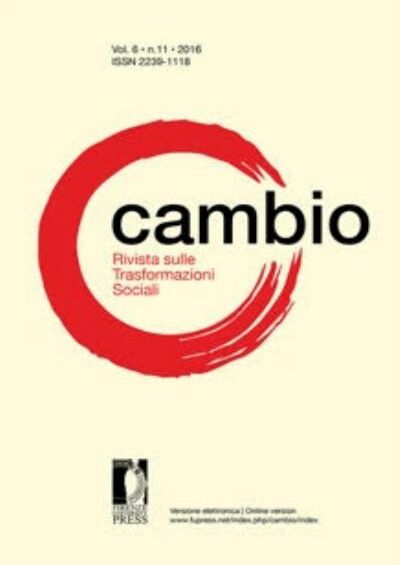This call for papers aims to gather theoretical or empirical contributions on the topic of work in the tourist sector. The overall goals are fostering the systematization of the scientific debate on the subject, the opening and consolidation of new lines of research, and the construction of more stable epistemological connections between tourism work studies and the broader interdisciplinary scientific debate on work.
Until recently, work in the tourist sector has been largely underexplored by scientific studies. The tourist sector itself only emerged by bringing together sectors that have traditionally been studied separately, such as hospitality, food and beverage, urban and interurban transports, etc. However, while the analysis of the dynamics of tourism economy has attracted research from different disciplines – from management to urban studies, geography, or political economy – tourism work still remains marginal in scientific research (Ladkin et al., 2023).
For a long time, researchers’ approach to these activities has been influenced by a kind of ‘industrialist bias,’ stemming not only from the non-conformity of service workers to the typical profiles of workers in other contexts (Veijola, 2010) but also from the idea that the expansion of services represented a threat to the ‘glorious industrial past,’ its wealth, and traditional forms of class conflict (Ioannides and Zampoukos, 2018; Judd, 2006). Rather than a respectable profession or a legitimate means of livelihood, tourism work maintains a stigma where it has historically been seen as a transient and unproductive activity, a secondary choice, a refugee occupation, or even a non-job (Szivas et al., 2003; Judd, 2006). These biases have led to less engagement in the study of tourist work, even though it constitutes an increasingly significant portion of global employment.
Although scholars have started to pay more attention to these occupations since the 2000s, studies have often been dominated by issues such as turnover,ì employment structure, the nature of skills, and service quality. These studies mainly reflect a managerial perspective concerned with the quality and quantity of work, focusing on how performances could have been improved.
Consequently, there is a lack of analyses that consider the nature of work, the production process, and the dynamics of control, cooperation, consensus, and conflict (Veijola, 2010). Trapped between a managerial and statistical perspective, tourism work has received very little attention from the social sciences (Ladkin et al., 2023; Iannuzzi 2021; Jordhus-Lier and Underthun 2014).
The result is a lack of a critical lens that makes difficult to focus on the transformations that are more recently involving the tourism sector. This sector has not only experienced an increase in market value (UNWTO, 2013) but is also experiencing qualitative transformations related to broader socio-economic processes.
Social transformations, technological developments, and the growth of interest of financial capitals are disrupting the tourism sector. New actors are emerging – digital platforms, financial funds, property managers, etc. – with consequences in terms of service provision, labor process, regulation, workers’ rights, and industrial relations (Wijburg et al., 2023; Gursoyet et al, 2022; Bianchi and De Man, 2021; Iannuzzi, 2021; Christian, 2016; Niewiadomski, 2016). Investigating these transformations not only means enlarging our understanding of the specificities of tourism work but would also provide a fundamental perspective on the sustainability of its growth.
We are particularly interested in contributions that have empirically investigated Southern and Mediterranean European regions. It is not a coincidence that the literature on tourism work lacks empirical studies in these regions. This is also the result of a ‘geographical paradox’ that insists the most on those regions where the tourism sector and employments are steadily growing, and where the weakness of other industrial developments makes it a significant share of the regional economy. In this perspective, the focus on tourism work is essential to move beyond the rhetoric seeing the tourism sector as ‘a sustainable model of development in underdeveloped regions.
This call is intended to contribute to this research agenda, recognizing that an investigation of tourism work today provides a means to address not only a steadily growing category of the global economy but also the specific trends and processes that are more generally transforming society (and the economy as part of it).
We invite scholars to contribute with their insights, theories, and empirical findings, irrespective of the methodology employed, to enrich the discourse on rethinking work in tourism. The focus of the call is on social scientists, but we also welcome scholars from other disciplines that may help to position the topic of tourism work in a broader disciplinary perspective. We particularly welcome comparative studies between different employments or different countries and regions.
Download CAMBIO CALL 28

